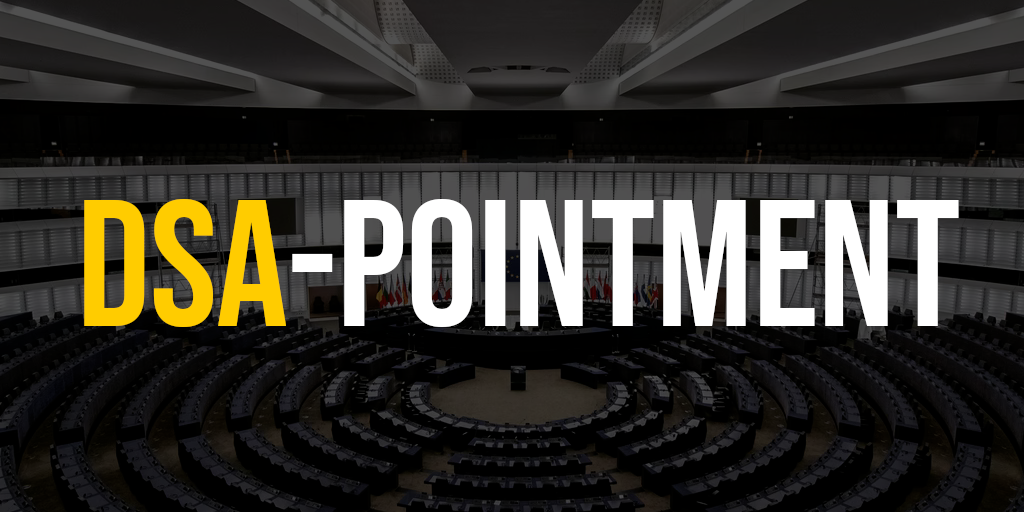Today, the European Parliament’s Internal Market and Consumer Protection Committee (IMCO) adopted its report on the EU’s planned Digital Services Act. Last night, three amendments by the Civil Liberties Committee on data protection, consumer protection and legal redress were rejected and a identification requirement for publications on porn platforms was added.
MEP Patrick Breyer (Pirate Party), who has been following the negotiations as rapporteur of the Committee on Civil Liberties, Justice and Home Affairs (LIBE), comments on the outcome:
“From a civil liberties and digital rights perspective, the outcome of the negotiations is largely disappointing. The European Parliament made groundbreaking demands last year, but it seems now that it was mostly bark and no bite. Anyone who had hoped for an end to the surveillance capitalist business model on the internet, an end to the monopoly position of a few internet corporations or the error-prone upload filter censorship machines will be disappointed. More transparency is simply not enough. Only few of the LIBE Committee‘s recommendations have been taken up.[1] This cannot be the last word. For the plenary vote in January, my committee will most likely present a whole series of amendments to protect privacy and freedom of expression.”
Pirate Party MEP Mikuláš Peksa worked on the DSA as rapporteur in the Committee on Economic on Monetary Affairs (ECON). The Czech Chairperson of the European Pirates sees a missed opportunity for constraining the power of autocratic governments, who will still be able to order the deletion of content abroad or request user information without court order:
„The central idea of the whole DSA is to modernize European access to digital services and make them more transparent, accessible, and free“, Peksa says. „Our main goal is to protect the interests of individual users and smaller players by clearly defining their rights. From our point of view, letting the authorities in each member state decide about banning ,,illegal” content is a colossal mistake which will fragmentise the market and allow authoritarians like Orbán to control the online space and oppress the opposition.“
The Pirates also see a new threat to digital privacy and security in yesterday’s decision to make publications of pictures and text on adult entertainment portals dependent on providing the operator with the uploader‘s personal mobile phone number. “Because of the foreseeable hacking and leaks of these porn uploader databases, this identification requirement virtually invites stalking and threats against sex workers, LGBTQI persons, and politically exposed and vulnerable persons. Victims of nonconsensual intimate recordings are harmed by the displacement of such material to non-EU portals, which simply ignore notifications of illegal material and requests from law enforcement. Accepting the elimination of anonymous publishing as a deterrent against objectionable content threatens to set a precedent far beyond adult entertainment.”
In detail, Breyer assesses the Digital Services Act compromises with respect to civil liberties as follows:
Upload filters
Parliament has learned from the protests against article 13/17 of the Copyright in the Digital Single Market directive, and rules out new filtering obligations in the Digital Services Act. However, the promise to ban the “voluntary” use of error-prone filters by internet platforms is not kept. In practice, therefore, nothing will change.
Data security
The promised right to anonymous internet use to put an end to the constant data leaks and misuse of data on the net is not part of the IMCO report. Government authorities would be able to request pervasive records on a person‘t online activities without a court order. At least the right to secure encryption is to be guaranteed. And service operators could not be obliged to generally and indiscriminately retain personal user data.
Surveillance advertising
The systematic monitoring and creation of personality profiles of internet users for advertising purposes is not to be banned. However, for the first time, users could generally opt out in the browser (“do not track”) and then also to be spared from annoying consent banners – an important step forward!
Freedom of information
Authorities could require the (cross-border) removal of internet publications without a court order – even if they are completely legal in the country of publication. This means that in future Orban can have content deleted throughout the EU, on the basis of his own laws. The promised ban on network-level blocking is also not part of the report. Internet platforms will not need to ask users before removing their content. At least, according to the Parliament, automatic suspension of users who have allegedly repeatedly violated copyright or other laws will not be mandated.
Interoperability
Digital corporations will continue to be allowed to decide on their own what appears in the timelines of users and what does not. Users are not given a right to opt out of the commercial recommender algorithms or use external algorithms of their own choice.
[1] (Non-)implementation of the recommendations of the LIBE Committee (green: implemented, red: not implemented): https://www.patrick-breyer.de/wp-content/uploads/2021/12/LIBE-DSA-Tracker_EN.pdf
Adopted text (compromise amendments 1-9): https://emeeting.europarl.europa.eu/emeeting/committee/de/agenda/202112/IMCO?meeting=IMCO-2021-1213_1&session=12-13-20-00&item=IIMCO(2021)1213_1DE-5&lang=en


0 comments on “Digital Services Act: No game-changer for the protection of citizens’ rights online”